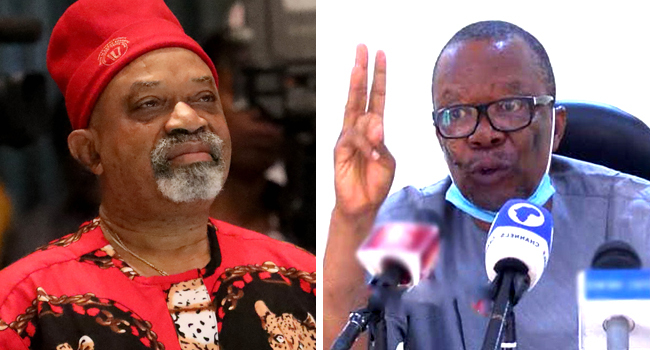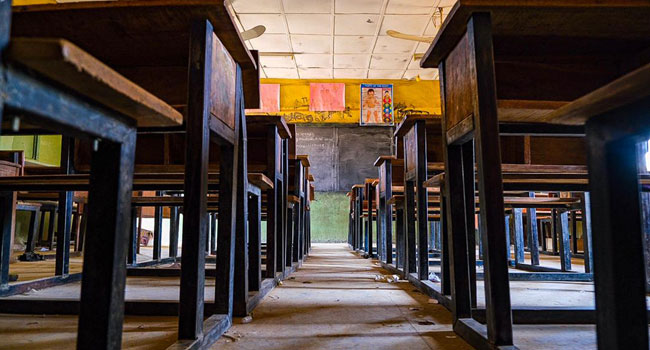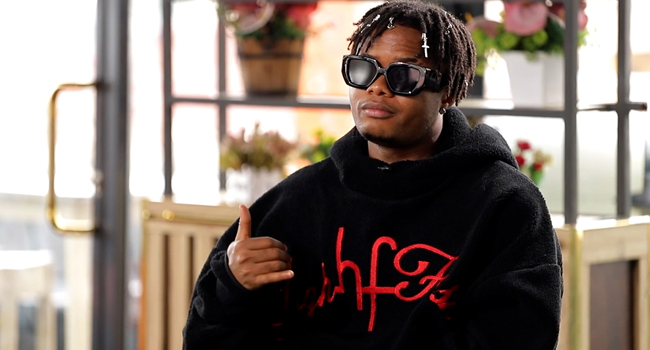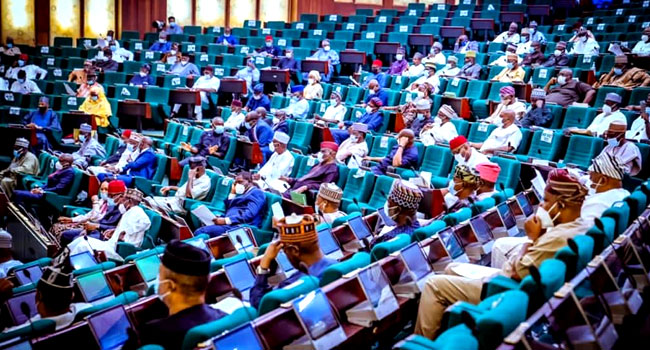When Sofia Yusuf registered for the 2022 Unified Tertiary Matriculation Examination (UTME), she hoped to get admission into one of the nation’s leading universities as soon as possible.
Having scored 260 in the yearly entrance examination on her first attempt, Sofia’s dream of studying Agriculture Economics at the University of Ibadan (UI), became closer to reality.
But months after the UTME, the Lagos-based admission seeker is still stuck at home due to the lingering industrial dispute between the Federal Government and the Academic Staff Union of Universities (ASUU). In fact, Sofia has yet to sit for the University of Ibadan POST-UTME screening, one of the hurdles she must scale before getting admission into the school.
Just like Sofia, thousands of candidates who sat for the 2022 UTME and seeking admission into public varsities are still at home, unsure of their admission status due to the protracted ASUU strike.
According to a document released by the Joint Admissions and Matriculation Board (JAMB) as of last August, public universities had not processed about 461,000 admissions due to the varsity teachers’ strike which has lasted for more than seven months.
“Some institutions confirmed suspending the process because of the ASUU strike; ASUU strike is a factor; many institutions are yet to commence 2021 admissions despite repeated appeals,” the JAMB document read.
ASUU, which started the latest strike in February, is pushing for the signing and implementation of the 2009 negotiated deal it reached with the Federal Government. The union is also calling for the revitalisation of public universities in Nigeria and the adoption of the University Transparency and Accountability Solution (UTAS) for the payment of members instead of the Integrated Personnel Payroll Information System (IPPIS) currently deployed by the Federal Government.
While other university unions such as the Senior Staff Association of Nigerian Universities (SANNU), Non-Academic Staff Union of Education and Associated Institutions (NASU), and the National Association of Academic Technologists (NAAT) called off their strike, negotiations between ASUU and the government have since halted and the dispute shifted to the courts.
Like the proverbial grass that suffers when two elephants fight, admission seekers are one of the sets of persons caught in the crossfire between the Federal Government and the public universities’ lecturers.
The National President of SSANU, Mohammed Ibrahim, admitted challenges that universities may face due to the admission backlog.
This is a source of concern for him.
“The strike will definitely affect the 2022 admission…,” he said.
Costly Alternatives

Unsure of their admission status, the alternatives for these admission seekers are limited and even costly.
Data from Statista shows that the most expensive private universities in Nigeria charge between N800,000 to N2.4 million per session as tuition fees for an undergraduate programme. The cheaper alternatives take an average of N300,000 based on findings by this writer.
Going abroad is even costlier. For instance, each Nigerian student in the United Kingdom pays an average of £12,000 just for tuition, according to the Higher Education Statistics Agency (HESA).
While these institutions could have been good options, their fees are mostly beyond the reach of many Nigerians, a fact one of the UTME candidates, Favour Ogbonna, admitted.
“I wanted to enroll in a [private university] but due to some circumstances, I can’t do such. I changed [my choice of school] because my sponsor said going to a federal university is what is within his budget,” the candidate, who scored 351 in the UTME, said. “So, I just have to change it (to a federal university).
Asides from private and foreign universities, some admission seekers are looking elsewhere.
Sofia said she “will go for another option” which may be a polytechnic or other higher institutions of learning like a state university (some of them don’t join the ASUU strike).
It is a similar story for another UTME candidate who simply identified herself as Tolani.
The youngster, who chose the Federal University, Oye-Ekiti (FUOYE) where she intends to study Political Science, said, “Maybe I will apply for a polytechnic”.
On his part, Opeyemi Akinwade said he is “considering enrolling in a state university – because some of them are not part of ASUU” – meaning they are not on strike.
Worried Parents, Students

For parents, however, the lingering strike has implications beyond the inability to gain admission.
One of them, Mr. Wale Oni, has joined calls for the prompt resolution of the dispute.
He fears that a lack of study and opportunities may push desperate students into crime.
“An idle hand is the devil’s workshop,” the Lagos parent warned.
The National Parents Teachers Association of Nigeria (NAPTAN) said they are ready to support the government if funding is the issue.
“For the mere fact that they cannot resolve the issue amicably and make the lecturers go back to the universities and teach, means that we as parents are claiming it is because of lack of money, and if it is a lack of money, we want to partner with them; contribute,” NAPTAN Chairman Akwa Ibom State, Okuetong Ataide, said.
Admission seekers, who spoke with Channelstv.com, corroborated Oni’s fears about the industrial action, saying their parents are unhappy about the development.
“My parents are worried about the development and me not resuming despite my high score,” Favour admitted.
A University of Benin (UNIBEN) prospect, Faith Edobor Ivie, said her parents share a similar concern. The direct entry candidate said, “the lingering strike has been quite devastating to them”.
She said her inability to sit for the entrance exam at the school has left her “terrified”.
“Most of the time I feel terrified because this is like the first time my quest for knowledge in my academics is been hindered and quite uncertain,” she lamented.
The lady, who is seeking admission to study Mass Communication in one of Nigeria’s leading public varsities, admitted that having been left in limbo since the strike started, the “hope that things will get better depreciates day by day”.
In Opeyemi’s case, the uncertainty about his admission status has ramped up the expectations.
He said, “everyone expects me to be in school by the end of the year at least”.
Skilling Up

As their hopes of gaining admission hang in uncertainty, some of these UTME candidates are seizing the opportunity to either acquire skills or get temporary jobs.
Favour said she was “into computer training before sitting for UTME [and I am continuing] working under training. I started before the recent ASUU strike”.
Her venture into computer training may have informed her decision in seeking to study Computer Science at the Federal University of Technology (FUTO), Owerri.
Tolani’s case is almost the same. She is “learning fashion design while awaiting the end of the ASUU strike”.
While also “preparing for the POST-UTME”, Sofia said she is “actually learning fashion designing while waiting until ASUU calls off the strike”.
Faith told Channelstv.com that she is “currently an apprentice undergoing training as a hairstylist” as part of strategies to keep herself engaged.
Opeyemi’s story is slightly different from hers. Having scored 240 in the UTME, the Agriculture student prospect of the Obafemi Awolowo University (OAU) said: “I work and help someone in their office to sell something”.
But those who sat for the 2022 UTME are not the only ones affected by the long-drawn ASUU strike. In some schools, students admitted to study for the 2021/2022 academic session are yet to resume classes.
According to the SSANU president, this has left schools with a huge pile of admissions to process.
“As you are aware, most universities have not completed their last session,” the SSANU chief added.
“So, there was already an admission that people just registered and had not even started attending lecturers before the strike commenced. About three sets of students are waiting to be admitted to start their courses. The system is saturated.”
One such person who falls into this category of students yet to start lectures even after gaining admission is Afro-fusion maverick Divine Ikubor better known in the entertainment circles as Rema.
The Dumebi crooner, who had gained admission into the Creative Arts department of the University of Lagos (UNILAG), had lamented the shutdown of academic activities in universities.
“ASUU, since dem give me admission I neva start school o, e don do nau!” the rapper tweeted in Pidgin English in April.
When the Federal Government introduced the ‘No work, no pay’ policy– which it later set up a committee to review – one of ASUU’s arguments against the move was that the lecturers have a backlog of work to do once the strike ends.
“For these two sets of students that have been admitted by JAMB, we have to teach them over these periods to ensure that we meet up with the system,” the union’s president, Emmanuel Osodeke argued. “So, we are going to do the backlog of the work we have left behind.”
He maintained that if the government insists on non-payment of the backlog of salaries, “the lectures we should have given [to students] for 2020/2021 and 2021/2022 [sessions], should be allowed to go so we start a new session, 2022/2023, in September”.
Legal Brawl, Twists, And Turns

Frustrated by ASUU’s insistence, the Federal Government dragged the union to the National Industrial Court. In the September 21 ruling, the court ordered the lecturers to return to the classrooms. While the varsity teachers filed an appeal, the judgement again did not go in their favour.
The Court of Appeal, which granted ASUU “conditional leave to appeal the order of the Industrial Court” mandated the union to resume lectures immediately – that is on October 7th, 2022.
Before then, the Federal Government in what appeared to be a move to break ASUU’s ranks, registered and issued licenses to two factional unions – the National Association of Medical and Dental Academics (NAMDA) and the Congress of Nigerian University Academics (CONUA). The Minister of Labour and Employment, Chris Ngige, said the unions will function alongside ASUU.
But ASUU dismissed the move, insisting it is not bordered by the Federal Government’s action.
“That does not in any way affect us. We are a disciplined and focused union and we know what we are doing and what we are after,” Osodeke said. “Let them register as many unions as they like. The sky is big enough for birds to fly”.
ASUU also claimed the bodies are illegal, vowing to take legal action against the Federal Government.
While several students had in the past protested against the strike, blocking major roads across the country, and even describing the earlier rulings “as black market judgement’, some are now calling for an out-of-court settlement.
Though hopes are high that the eight-month strike will end soon, the impacts of the industrial action would linger for a long time. Even if ASUU calls off the strike today, the air of uncertainty for admission seekers, the backlog of lectures, and the processing of their admissions will remain big issues.



